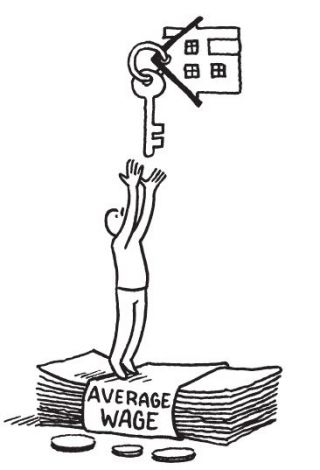Budget 2021 Continues to Privatise Public Housing

Local Authorities spent over €185 million on emergency homelessness accommodation last year—over €507,000 per day and an increase of 26 per cent on 2018. This is compared to less than €10 million for homelessness prevention and tenancy sustainment, similar to the previous year. The increased allocation of €22 million to homelessness services is, of course, to be welcomed, however it fails to tackle the cause of the problem. Further, investment in ensuring that homeless are accurately counted, is needed to verify the real scale of the problem and design preventative solutions, rather than increasing expenditure dealing with the consequences of inadequate housing policy.
In Budget 2021, the Government announced its intention to build 9,500 social housing units next year. This target is too low considering less than 10 per cent (725 units) of this year’s target was built by Local Authorities and Approved Housing Bodies in the first half of the year (including Regeneration, PPP and voids) and the target for 2021 under Rebuilding Ireland was 8,907 builds.
The provision of social housing solutions remains reliant on the private rented sector. Estimated spending by Local Authorities on the Housing Assistance Payment (HAP), Rental Accommodation Scheme (RAS) and Leasing for 2020 was €1.015 billion. Social Justice Ireland is disappointed that this Government seeks to continue the previous Government’s strategy, allocating €2.4 billion for an additional 15,000 HAP and 800 RAS tenancies.
The emphasis on ‘social housing solutions’ to replace real social housing leaves 133,000 households (including those on the social housing waiting lists, those in receipt of HAP, those living in Direct Provision, those in overcrowded accommodation and those seeking refuge from domestic violence) without secure accommodation.
Social Justice Ireland welcomes the increase in funding for rental inspections. However we regret the lack of action on affordability or tenant protections. Protections introduced in the wake of Covid-19 were either reversed or reduced in subsequent months, while the Standardised Average Rent nationally in Q2 2020 was 20 per cent higher than in Q4 2007. In addition, more than one in three renters (34.4%) experienced enforced deprivation in 2019.
Affordability, both in rents and purchase prices, continues to be an issue. The average price of a property in the year to July 2020 was €295,825, with averages by county ranging from €120,232 to €607,667. The slow-down in sales since March, and consequent reduction in asking prices, demonstrates the pro-cyclical nature of the private housing market, making it unsuitable for social or genuinely affordable housing in the longer term.
Residential completions decreased by over 32 per cent in the year to Q2 2020. This contraction of supply comes after years of underactivity in the sector. While we await details of the Affordable Purchase Shared Equity Scheme, we question the use of the Local Infrastructure Housing Activation Fund as a mechanism for providing affordable housing, as associated average market costs range from €180,000 to €510,000 and discounts vary greatly.
Social Justice Ireland regrets the missed opportunity in Budget 2021 to invest in local and regional small-scale developments, such as over-the-shop conversions and improvements to existing structures. This would not only have provided affordable homes, but created local employment and stimulated local economies.